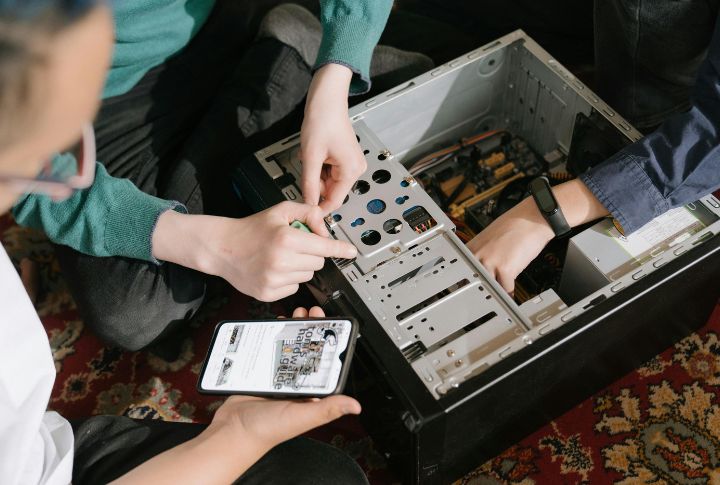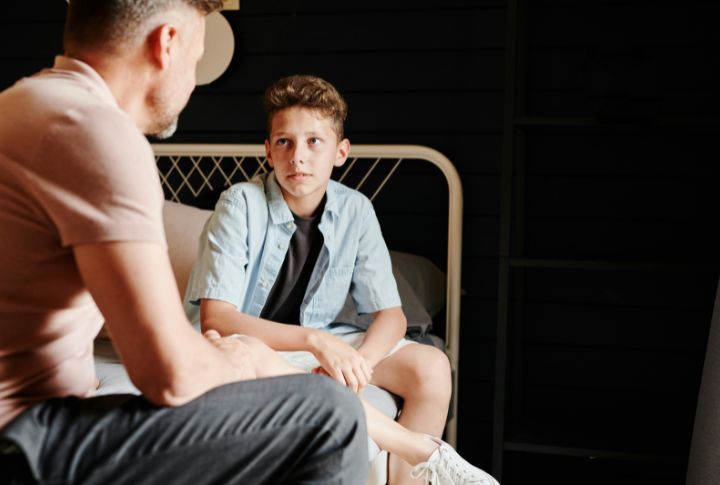
Some family conversations are perfectly safe. Others? Not so much. Millennials often hold back feelings about their upbringing, quietly resenting certain things their parents did—or didn’t do—without ever saying a word. It’s not about blame, just honesty; they’ve been keeping it under wraps. Curious what’s on that list? Here are 20 things millennials hold their parents accountable for.
Lack Of Financial Education

Millennials usually resent that their parents never taught them real-world money skills. While Boomers had pensions and steady jobs, their kids were thrown into debt and budgeting chaos. Talking about money feels awkward, so Millennials quietly struggle, wishing they’d been prepared instead of learning the hard way.
Pressure To Pursue Traditional Education Paths

Many Millennials feel frustrated by the push toward traditional education. They believed college would guarantee a stable future, but job struggles told a different story. Today, they quietly challenge those expectations and find new ways to succeed without blindly following the path their parents insisted was essential.
Dismissal Of Mental Health

You’re drowning in anxiety, finally tell your parents, and they hit you with “everyone gets nervous sometimes, you’ll be fine.” Millennials didn’t just get ignored—they got gaslit into thinking their mental health struggles were basically made-up problems that didn’t warrant real concern or professional help.
Neglecting Emotional Support

Remember crying as a kid and getting “stop being dramatic” instead of a hug? Millennials do. Their parents treated emotions like problems to shut down, and not experiences to validate. Now as adults, they’re still unlearning that damage—still struggling to believe their feelings matter enough to share with anyone.
Undervaluing Creative Careers

Mention to your parents that you want to be a designer, writer, or musician. Prepare for the lecture about “practical choices” and “backup plans.” Millennials watched as the creative economy boomed, while their parents insisted that real careers meant office jobs with steady paychecks. Passion got dismissed as naivety; artistic ambition became something shameful.
Avoiding Conversations About Relationships

Millennials got zero relationship guidance growing up—just awkward silence when they asked questions. Parents avoided talking about consent and healthy intimacy entirely. So they stumbled into dating completely unprepared, learning through painful mistakes instead of conversations that could’ve actually helped them manage romance successfully.
Pushing Outdated Success Metrics

Their parents made it sound so simple: get a degree, land a job, buy a house, done. Millennials tried following that script and discovered it was written for a world that no longer exists. Now they’re drowning financially while parents wonder why they’re not hitting milestones that became impossible decades ago.
Forcing Religious Or Cultural Expectations

Millennials couldn’t question their parents’ religion without it becoming a family crisis. Every doubt felt like betrayal, every skipped service sparked lectures about disrespect. Spirituality turned into an obligation rather than a choice—something you performed to keep the peace. They resent never having space to explore what actually resonated with their own hearts.
Ignoring Consent And Bodily Autonomy

Your parents saw you pulling away from a relative’s hug and pushed you forward anyway. Millennials lived this on repeat—their “no” never actually meant no when adults wanted affection. It was always “stop being rude” in place of “your boundary matters.” Early experiences taught them that their body didn’t belong solely to them.
Minimizing Harassment Or Peer Struggles

Getting picked on at school was bad enough. Coming home to parents who shrugged it off as “kids being kids” made it so much worse. Millennials needed support and got minimization like their suffering was no big deal. Years of struggles conditioned Millennials to stay quiet, even when mistreated.
Overemphasis On Achievement Over Well-being

Report cards got more attention than mental health in millennial households. Their parents cared intensely about performance but barely noticed the anxiety building underneath. Every achievement just meant pressure for the next one, creating this endless treadmill where being good enough never actually felt possible or within reach.
Not Preparing Them For Real-World Skills

Nobody taught millennials to do taxes or handle basic home repairs. Parents focused on school success; however, they ignored practical skills that actually matter in adulthood. So, now they’re figuring out essential stuff through YouTube tutorials and expensive mistakes. They resent that such basic knowledge was never passed down at all.
Using Guilt As A Parenting Tool

Parents made millennials feel guilty for basically everything growing up. Want different goals? That’s disappointing them. Need boundaries? That’s ungrateful. Independence wasn’t celebrated—it was treated as selfish abandonment. This eventually turned millennials into adults who struggle with decisions because all choice still feels like they’re somehow hurting someone they love.
Avoiding Apologies Or Accountability

Many millennials have never heard their parents say “I’m sorry.” When mom or dad messed up, there was just silence—no apology, no acknowledgment. This created a blueprint where admitting mistakes felt impossible. Today, acknowledging mistakes is a challenge for them, since their upbringing never included it.
Creating A Culture Of Silence Around Family Trauma

You know what really hurt? Growing up surrounded by obvious family pain that nobody would acknowledge. Millennials could feel the tension, sense the secrets, but their parents acted like everything was fine. That forced silence left them feeling crazy, like they were imagining problems that were painfully real.
Dismissing Modern Struggles With Nostalgia

Nothing feels worse than opening up about your struggles only to hear, “Well, back in my day…” Millennials resent how their parents turn every conversation into a competition about who had it harder. Housing costs and job insecurity—all met with dismissive stories about walking uphill both ways.
Pushing For Babies They Won’t Pay For

Millennials are tired of hearing “when are you giving us more grandkids?” from parents who bought houses for pennies. Mom and Dad raised three kids on one income while building savings. Now their millennial children work multiple jobs just to afford one kid, yet still get guilt-tripped about family size like nothing’s changed.
Shaming Body Image

Those casual comments about weight and body shape that parents tossed around? Not so casual for millennials who grew up hearing them. What many parents saw as helpful “motivation” actually planted seeds of lasting self-doubt. Science also proves that these seemingly innocent remarks can trigger lifelong battles with self-esteem and mental health.
Treating Therapy As A Personal Failure

Millennials can’t digest how their parents treat therapy like a dirty secret. Mention that you’re seeing a counselor, and watch them flinch or change the subject. They act like needing mental health support means you’re broken or weak, when really it just means you’re human dealing with hard things.
Expecting Gratitude For Bare Minimum Parenting

There was always this unspoken debt hanging in the air. Millennials couldn’t disagree or set boundaries without parents pulling out the “everything I’ve done for you” card. Providing shelter and food—the actual legal minimum—somehow entitled parents to control, obedience, and perpetual thankfulness.

